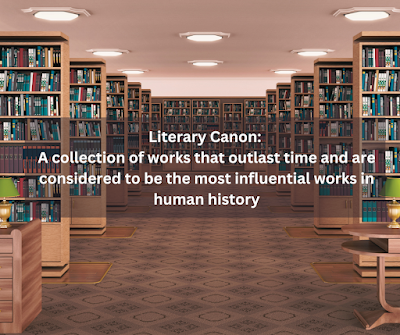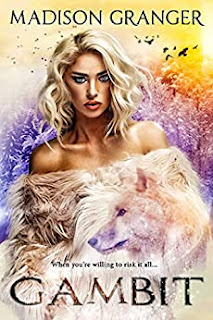A Good Library and the Books that Devour Us
Every author dreams of writing the next great novel. We want to write a story that stays with the reader long after it's over. We want it to crawl into their skin, seep into their bones, and completely penetrate their being, leaving their soul acheing for more and their mind blown wide open. We want to destroy our readers. All of us crave to see a five-star review pop up on our pages saying, "This book utterly wrecked me", but writing them is difficult.
As a writer, you cannot fully predict how your work will affect your reader. Sure, you have a general idea and you put a lot of work into picking the language you think will cause your reader to feel what you want them to, but ultimately what the reader feels isn't up to you. Readers will feel differently about books because of their personal lives. That's why we have trigger warnings and banned books.
As a reader, in life, you will read many books- hundreds of books. Out of those hundreds, you will five-star rate a handful of them. Then, out of that handful, only 1 or 2 will actually resonate with you so deeply that you're left in a book coma. It is uncommon to find a book that you completely devour from cover to cover, but it is rarer to find a book that devours you.In school, you are taught about the literary canon and almost every book you're assigned to read is from that collection. The literary canon is a collection of books that are thought to outlast time and be the most influential works of human history. The canon includes works like A Tale of Two Cities, To Kill a Mocking Bird, Homer's Odyessy, The Illiad, Paradise Lost, and Romeo and Juliet. Many of the books in the canon are banned because even though they are great works about human existence some people think they are influential in the wrong way. To Kill a Mockingbird, for example, has been a topic of debate for book banners everywhere because of its racial slurs. I hold the opinion that it shouldn't be banned because the slurs used were historically accurate and helped paint a picture of our past as a species, but there are others who say that to prevent repeating history we must erase it all altogether.
One of my favorite quotes is by Jo Godwin. I won't pretend that I know who he is, but I will say that the first time I read this quote by him I felt it in my core. It became the entire backbone of how I choose what books to read. That quote is, "A truly great library contains something in it to offend everyone. I can count on one hand the number of books I've read that have 'offended' me. I use 'offended' loosely as the definition of offended is to cause an upset or resentful feeling. Honestly, it's kind of a vague definition. Most people use the word to mean, "You pissed me off because you made fun of something I value", but really to offend is to set on edge. To cause an uncomfortable feeling in someone's gut, and uncomfortableness is how we grow. Being offended teaches us what we truly believe and stand for.
There are four books in my reading history that have 'offended' me:
1) Corrections, by Johnathan Franzen
2) Sarah's Key, by Tatiana De Rosnay
3) Ames Brisees, by Ella Shawn
4) The Southern Book Club's Guide to Slaying Vampires, by Grady Hendrix
Out of these four books, I still own a copy of three of them. Each of the four books I mentioned struck a different cord inside of me, but I've only recently added The Southern Book Club's Guide to Slaying Vampires to the list. At the time of this writing, I'm not even completely done reading it, but boy does it make my gut churn, my heart heave, and my temper soar.
Remember how I said you'll have a handful of books in your life that you devour and even less that devour you? I'm devouring The Southern Book Club's Guide to Slaying Vampires, but at the same time, it is feasting on my very essence. It is only the second book in my life that has left me feeling hollow and stuck in my mind. The first was The Perks of Being a Wallflower, by Stephen Chbosky.
I would die to write a book that leaves a reader feeling hollow. For real, that is like the ultimate dream. To have that kind of effect...to make someone think...to leave them wanting to cry, scream, and puke at the same time...isn't that every author's dream? To make a lasting impact?
When we write our stories, we don't always know what we're trying to tell our readers. Sometimes we don't know until the second, third, or fourth draft. Other times, we go into the story knowing exactly what we want the reader to get from it. Having a plan and executing it are completely different things.
The Perks of Being a Wallflower destroyed me because it talked about topics I, as a fresh young adult, was too afraid to ask anyone about. It gave me answers I didn't realize I was looking for and helped me start processing some trauma I experienced, as well as understand why the people around me did what they did. Would it have had the same impact on me if I was at a different place in my life when I read it? Probably not. It impacted me because of the circumstances I was in and the questions I had.
The Southern Book Club's Guide to Slaying Vampires is affecting me right now, as I write this. I'm thrown because even though there is an actual vampire in the book, there are other characters who are 'vampires' too. The husbands are vampires, preying on their wives's emotions. The sexism, racism, and symbolism in the book are almost overwhelming. There is so much that I'm getting from it...it's...exhausting.... I know when I finish reading this book that I will need to read something cozy and light to bring myself back into my body. I know I'm going to feel lost and hollow, but I have to finish it. I have to know how it ends and if both the real and the symbolic vampires are destroyed. I have to know if Patricia makes it out alive.
I think, ultimately, what makes a good book is a combination of the reader's situation going into it and the writer's intentions. Will I ever write a book that hits my readers as hard as these have hit me? Will you ever write one? We can't say for certain. No writer can. Because we are only half of the equation. So, yes, we all want to write the next great novel and we all want our works to end up in the canon, but at the end of the day, it doesn't matter if they end up there or not. What matters is that we've written the story and put it out there so the reader who needs it can find it.
.png)




Comments
Post a Comment